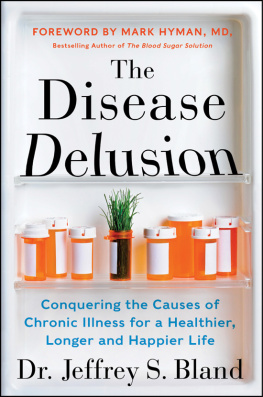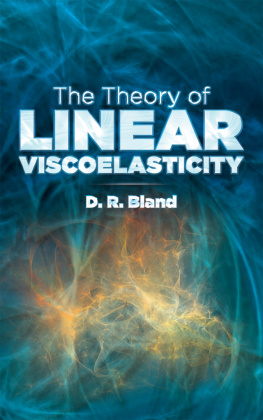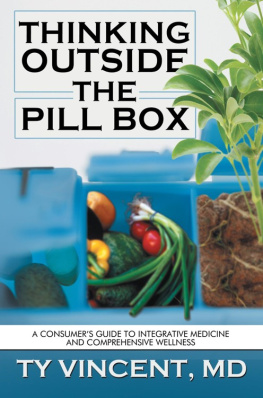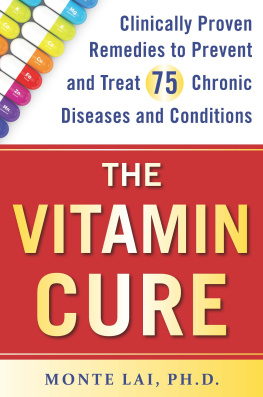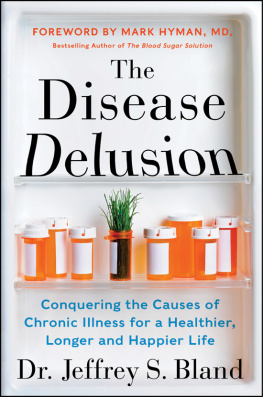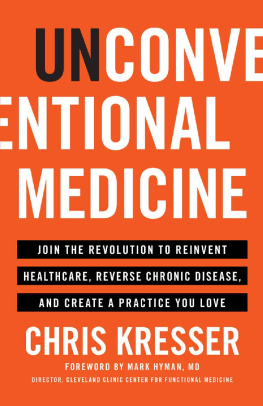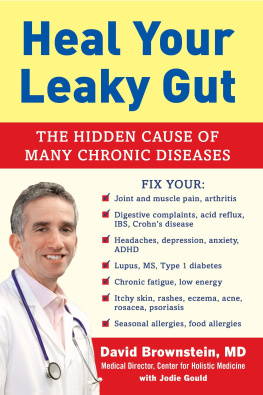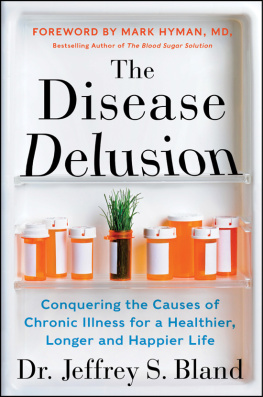T O S USAN B LAND, WHO HAS LOVINGLY HELD ME TO THE HIGHEST STANDARDS OF DEDICATION TO EXCELLENCE, AND TO MY FAMILY, WHICH HAS SUPPORTED ME IN WHAT IT TAKES TO MAKE THIS HAPPEN
Contents
I magine a time when people died or suffered from incurable acute infections. Imagine a time before antibiotics when women died of simple childbirth fever, when a bad chest infection could lead to death, when a strep throat caused heart failure, when limbs were amputated because of an infected wound. Those commonplace occurrences seem unimaginable now.
Yet that is the exactly the state of medicine today as we face the tsunami of chronic diseases that will cost our global economy $47 trillion over the next twenty years and kill twice as many people around the world as infectious disease.
As we spend more and more for health care, we get less and less. The United States has worse health-care outcomes and lower life expectancy than almost every other developed nation. Heart disease, diabetes, cancer, autoimmune diseases, digestive disorders, dementia, allergies, asthma, arthritis, depression, attention deficit disorder, autism, Parkinsons disease, hormonal problems like early puberty and infertilitythese and more cause endless suffering and drain our financial resources. Chronic diseases now affect one in two Americans and account for 80 percent of our health-care costs. Yet despite a host of new drugs and procedures, the incidence of chronic disease continues to rise, not only in the United States but around the globe as developing countries adopt the worst of our food and culture.
The answer to this paradox should be obvious to all of us: what we are doing is not working. Our current medical model was constructed to treat acute disease, which we have mostly vanquished. We identified a single agent for illnessa microbeand a single agent to treat it: antibiotics. Since then, medicine has pursued a quest: to find a pill for every ill. This quest has failed. We need a different paradigm, a different model for diagnosing and treating this new epidemic of chronic disease.
The Disease Delusion dissects the failure of medicine to solve our health crisis and lays out a new map for understanding and treating illness based on functional medicine, a fundamental paradigm shift from medicine by symptom to medicine by cause, from medicine by disease to medicine by system, from medicine by organ to medicine by organism. It is an ecological view of the body where all the networks of our biology intersect and interact in a dynamic process that creates disease when out of balance and creates health when in balance. It takes all the component parts of science, all the puzzle pieces, all the data about how we get sick and what makes us well, and reorganizes them into a narrative that makes sense, one that has the capacity to fix our health-care crisis nearly overnight if it was applied widely.
Medicine is the youngest science. There is no theory of medicine. There are no organizing principles that help us navigate the territory of chronic disease. Functional medicine is that breakthrough theory, the biggest breakthrough idea in medicine since the discovery of the microbe and antibiotics.
It is a cataclysmic shift in our view of biology. There are moments of awakening in science that are not incremental but transformationalColumbus proving the earth was round, not flat, Galileo showing us the earth was not the center of the universe, Darwin explaining that species evolved and didnt arise fixed in their current form, and Einstein shattering our notions of time and space. Functional medicine is a paradigm shift of equal magnitude and significance.
Disease appears real and fixed, just as the earth seems flat and time and space seem linear and solid. In The Disease Delusion , the father of functional medicine, Dr. Jeffrey Bland, the man who has synthesized more medical science from more fields of study than any other human in the past thirty years, shatters our notion of disease. Disease as we think about it is a false idol. It does not exist in the way we think about it. The names we give diseases are useful for finding the right medication but not for truly getting to the cause or creating a healing response.
When we tell a patient who has symptoms of sadness and hopelessness, who cant sleep, who lacks interest in daily activities, food, or sex that he has depression, this is not helpful. Depression is not the cause of his misery; it is merely the name we give to this constellation of symptoms. We then treat these symptoms with an antidepressant, which works only a little better than chance.
The actual cause of the depression may vary greatly from patient to patient. It may be a leaky gut caused by gluten that activates the immune system to produce antibodies against the thyroid, leading to low thyroid function and depression. It may be a vitamin B12 deficiency resulting from long-term use of an acid-blocking drug for reflux, or a folate deficiency caused by a gene called MTFHR, or a vitamin D deficiency resulting from inadequate sunlight. It may be a mercury toxicity from a diet too high in tuna, or an omega-3 deficiency from a diet too low in fatty fish, or prediabetes brought on by a diet high in sugar. The symptoms may arise from changes in brain chemistry brought on by life trauma or stress, or even by alterations in the gut flora resulting from antibiotic use. Each of these factorsdietary, environmental, lifestylecreates a different imbalance, yet all cause depression. Knowing the name of a disease tells us nothing about its true cause; nor does it lead us to the right treatment. This is the disease delusion.
As a student of functional medicine for twenty years, and as a practitioner who daily faces the failures of our current medical model and witnesses the miracles of treating illness using this new medical paradigm, I feel strongly that we are on the verge of a true transformation in medicine.
Functional medicine is not simply about improving diet or getting more exercise or managing stress or reducing exposure to environmental toxins, all of which are critical foundations for creating a healthy human. Above all, functional medicine is the science of creating health. Disease goes away as a side effect.
Functional medicine is a personalized method for getting to the root of symptoms and restoring balance. It is the story of a little girl, Elise, who had suffered from intractable psoriasis, with red, weeping, raw skin from head to toe, since she was six months old. Her parents had taken her to the top medical schools, and she had been given the most advanced drugs, including powerful immune suppressants and chemotherapy to shut off inflammation. When I first saw Elise she was four years old. She had just emerged from a month in the intensive care unit after fighting a life-threatening staphylococcus infection triggered by her medication, Enbrel, which suppressed her immune system. Rather than inquiring about the root cause of her inflamed skin, doctors used medication to suppress symptoms. Still she was no better. No one asked about her diet or thought about how her history of antibiotics as a baby affected her delicate gut flora, thus setting up the conditions for inflammation.
Functional medicine led me to a different set of questions. Rather than asking what drug I should use to treat the symptoms, I asked what caused the inflammation in the first placea simple idea that is foreign to our medical training. The causes of inflammation are fewmicrobes, allergens, toxins, poor diet, stress. And I asked what her immune system needed to regain balance. Then I applied these principles to her by removing a common cause of inflammation in our dietgluten, known to be linked to psoriasisand cleared out bad microbes (yeast) in her gut that resulted from years of antibiotics and steroids. I also added a few ingredients needed to support proper immune functionomega-3 fats, zinc, vitamin D, and probiotics to help balance her gut flora.

